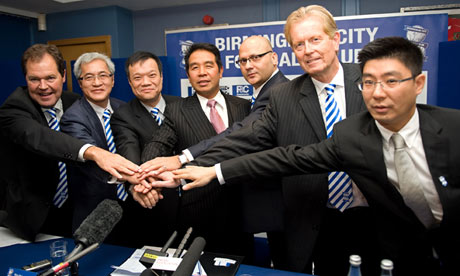Many moons ago, during my university years, I had my first and last commerce-based epiphany while sitting through a marketing lecture. The speaker, whose name, voice and face I couldn't place if I tried, started talking about the way in which the Harley Davidson motorcycle company essentially had a huge portion of their customers in the palm of their hand because these diehard riders and motorbike enthusiasts displayed what marketers called "loyalty beyond reason".
This meant that no matter how the company behaved, how tacky the licensing deals they pursued or how ubiquitous their brand name became, the lifestyle that surrounded their product and the emotional pull of their bikes for rusted-on diehards was too strong for those customers to resist or abandon. The Apple brand is now probably a more salient example, such is the unquestioning faith a huge number of their customers place in both the brand and the cult of Steve Jobs.
At the time, this idea of loyalty beyond reason made me question whether there were people or ideals or products that I clung to with unquestioning faith. Thinking as loftily of myself as university are wont to do, I concluded that I was a person of intellectual fortitude and couldn't be pushed around and told what to think. In hindsight, not only was this wrong but it was a supremely ironic thing to think as I sat bored stiff in a lecture theatre, partaking in one of life's great symbolic rituals of conformity and fulfillment of parental expectation.
What I failed to admit then was that my almost daily displays of loyalty beyond reason are tied to sport. Cricket primarily, but also Australian Rules football, basketball, tennis, soccer, and any number of other essentially trivial events around which I organise my entire life and to which I've devoted the lion's share of my discretionary waking hours.
Maybe you're a little like me and think that your cynicism and finely-tuned worldview acts as a shield to the avarice, corruption and simmering sense of discontent that characterize modern sport but I'd follow up the establishment of that point by asking you how many times you've sat and watched these sports in the last two weeks. In my head I can tick off a checklist of many ills that have blighted cricket in the last ten years and many more reasons for which a perfectly reasonable person could abandon the sport and take up a new hobby. I don't though because they've got me by the balls.
It makes me wonder just how bad cricket could get before I stopped watching it. That's no insult to the game in its current form because I love it as I always have, but the last ten years have proven that all of the subtle shifts in the landscape have a cumulative effect of altering the game markedly and not always for the better
I'll probably end up paying $400 for a World Cup final ticket, I'll upgrade my pay-TV subscription so I can watch a meaningless 10-game ODI tournament and I'll probably even buy the reissued 1992 Zimbabwe World Cup shirt because I'm a cricket nuffy. I decry the gauche incursion of monster trucks on the Big Bash League but then I'll go ahead and watch nearly every single game of the tournament. My loyalty goes beyond reason, as yours might too, and the marketing people know it. They could drive the monster trucks onto the ground mid-over and I'll keep watching.
In a way it makes me wonder just how bad cricket could get before I stopped watching it. That's no insult to the game in its current form because I love it as I always have, but the last ten years have proven that all of the subtle shifts in the landscape have a cumulative effect of altering the game markedly and not always for the better. By the time I'm 70 years old there might be no suitable willow left to make bats so they'll use aluminum ones or some composite fibre that hasn't even been invented yet. India, England and Australia might be the only teams playing in ICC events. The ICC might have been disbanded. Grounds might be half the size and the spectacle unrecognisable to what we see today, but it will still be called cricket and therefore I'll still be watching it.
This fan dilemma plays out elsewhere obviously. Hardened football fans who romanticise about the away days at ramshackle suburban pitches of the '70s might be physically repulsed by the obscene wages paid to English Premier League players and the ludicrous cost of a seat at the new mega-stadia, but mostly they keep watching, reading and forking out their dough to take part. Sport lovers are like those Harley Davidson-riding bikies and not just in a tribal sense, the love of these games that lives within them is as crucial to the beating of their hearts as the atrial septum.
One thing I would say is that for me sport has never stood in the way of maintaining a healthy amount of interpersonal relationships, but increasingly I find that it fills most other crevices of life. I'm more resigned to this than chastened or sad, but there are times when you've got to question that level of loyalty. I'll probably just wait until the cricket has finished though.



